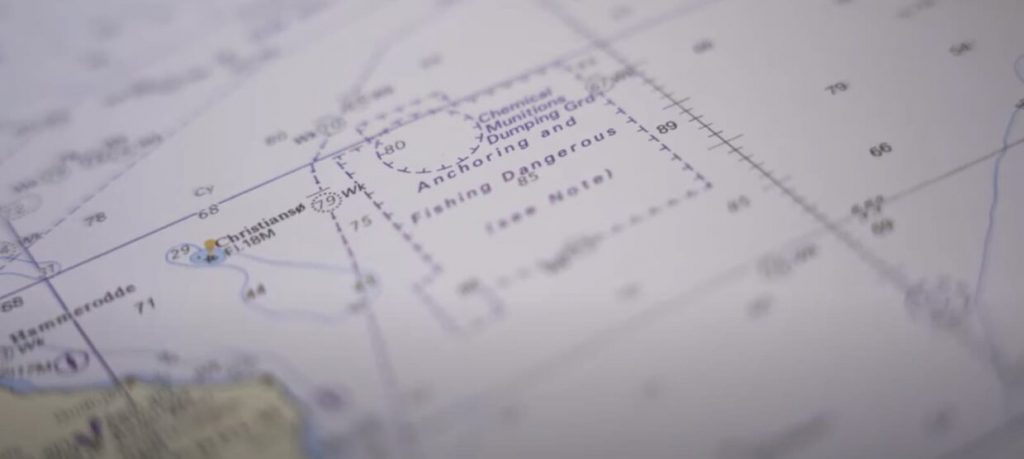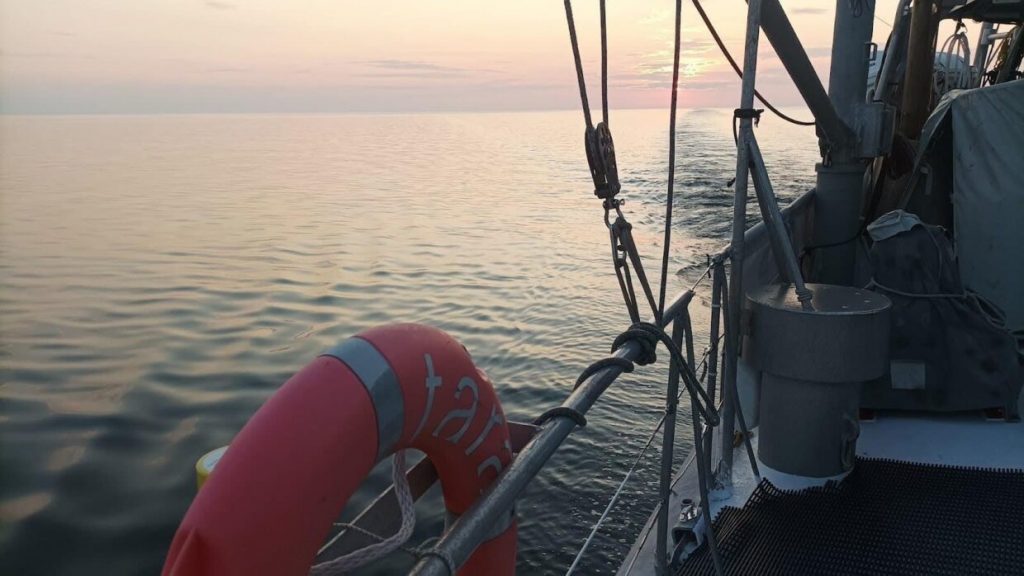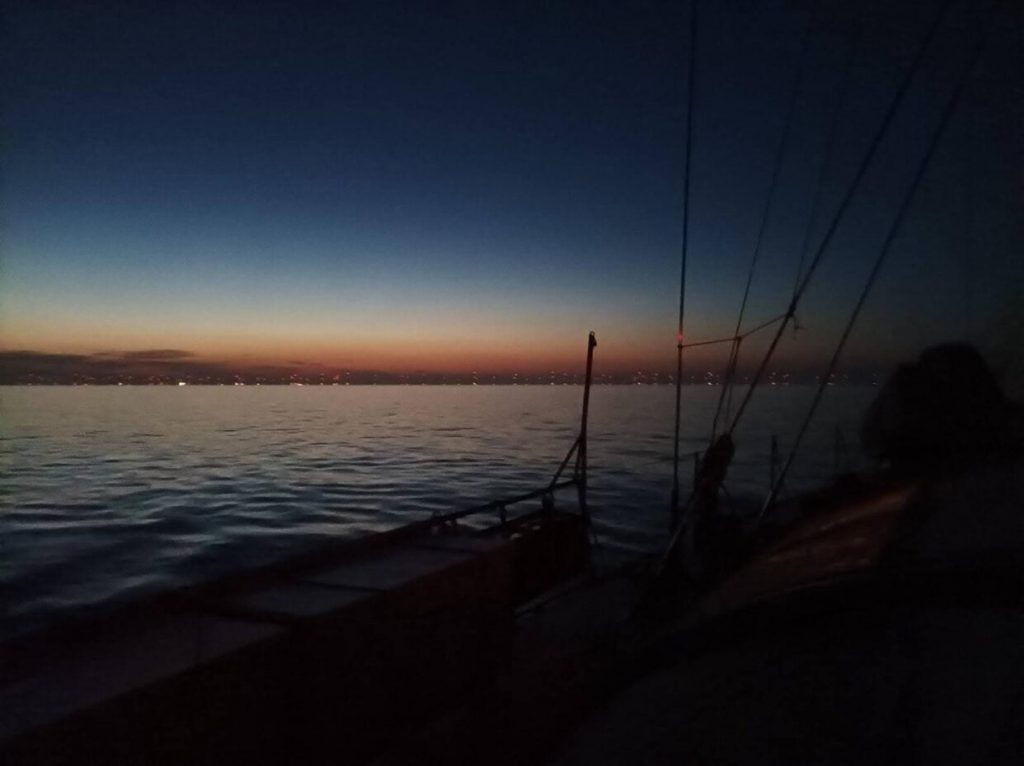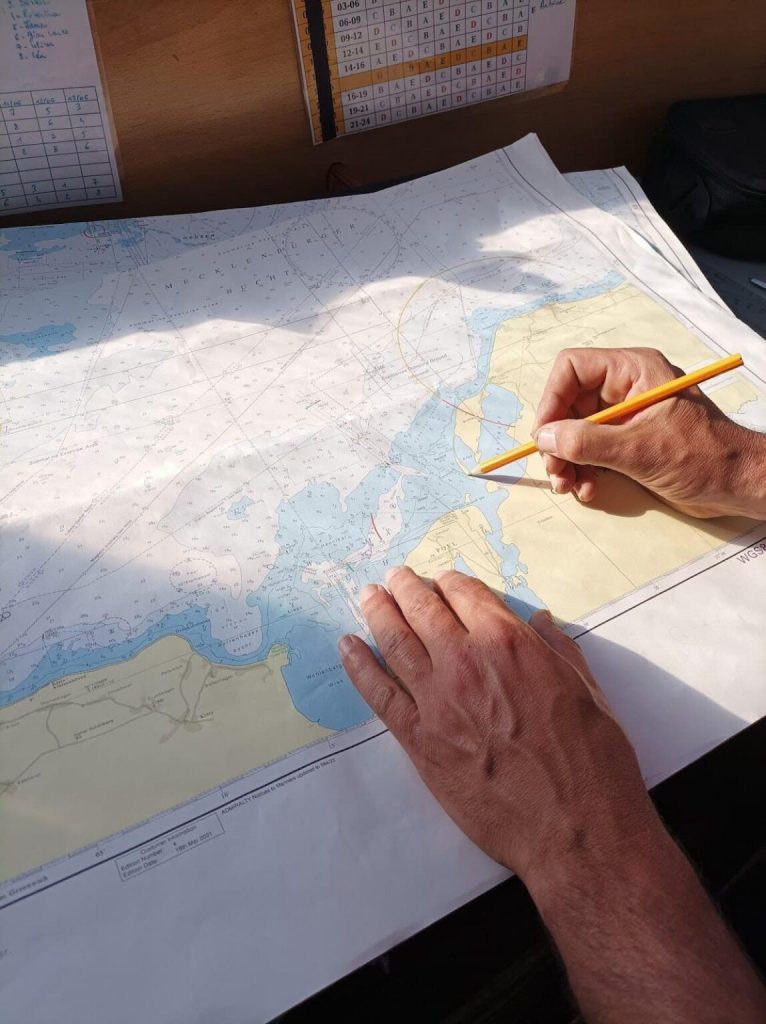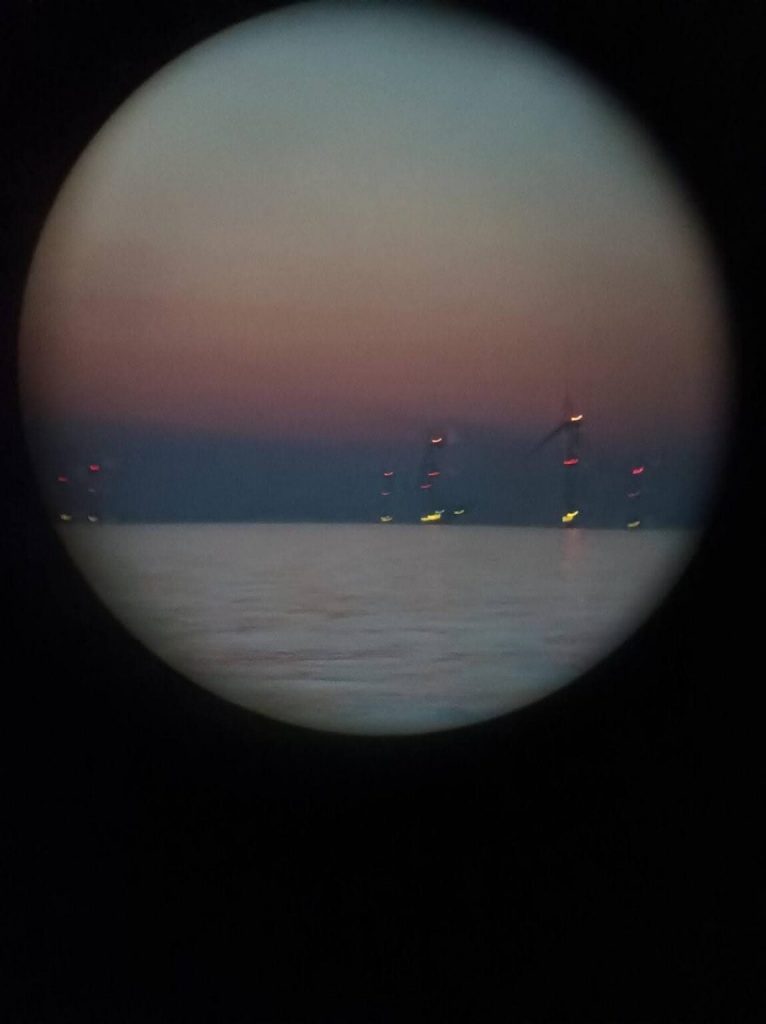
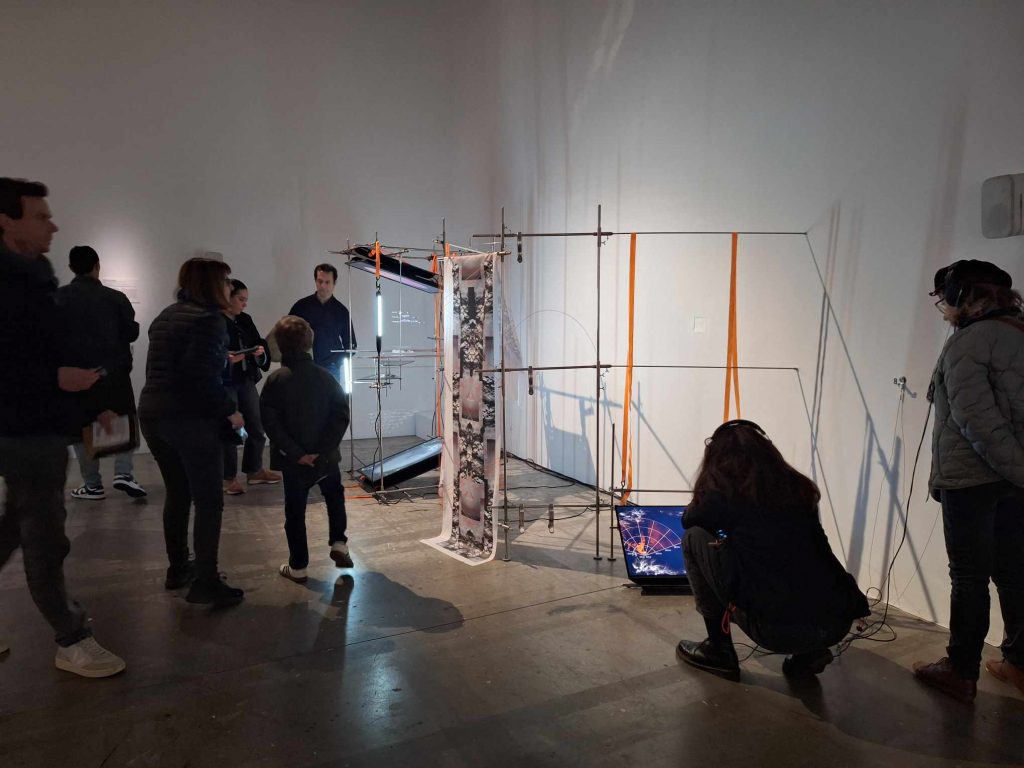
Echoes of the Abyss is a body of work that addresses the critical yet often overlooked issue of chemical weapons dumped on the ocean floor. These remnants of past conflicts disrupt biodiversity, water chemistry, and ecological balance, acting as environmental time bombs. Building on preliminary research conducted during the artist’s residency aboard the research vessel Tara Ocean Foundation in the Baltic Sea and continued during the MADE IN Platform in the Kvarner region of the Adriatic Sea, this project integrates an interdisciplinary approach, exploring the interactions between decaying munitions, marine organisms, and broader ecological systems.
“Beneath the waves, history decays. The past is dissolving into the sea, but its consequences are anything but washed away.” Robertina Šebjanič
Photos curtesy of artist, from of the premiere of the work Echoes of the Abyss: Toxic Legacies of Oceanic Ecologies, as part of group exhibition part of group exhibition La Grande expédition Tara, l’art et la science pour révéler l’Océan at The CENTQUATRE-PARIS in partnership with Tara Ocean Foundation, November 2024

photo by Quentin Chevrier; the premiere of the work Echoes of the Abyss: Toxic Legacies of Oceanic Ecologies, as part of group exhibition part of group exhibition La Grande expédition Tara, l’art et la science pour révéler l’Océan at The CENTQUATRE-PARIS in partnership with Tara Ocean Foundation, November 2024

With Echoes of the Abyss, Robertina Šebjanič explores the complex relationships between history, the marine environment, geopolitics, and the human footprint, charting submerged landscapes of harm not only as zones of contamination, but also as spaces of memory, resilience, and future-making.
The work builds on the initial research conducted aboard the Tara expedition vessel in 2023, where Šebjanič studied the contamination of marine environments by decaying munitions in the Baltic Sea. This research has been further extended to include the Adriatic region, revealing how geopolitical histories marked by conflict leave enduring marks on the environment.
Abandoned unexploded ordnance (UXO) left behind by conflicts lie scattered on the seabed around the world’s oceans, seas, rivers, and lakes, posing environmental and ecological dangers. As the corroding shells thin over time, they begin to seep into the seafloor, releasing hazardous chemicals into groundwater and seawater alike, destabilising the delicate balance between the human and more than human worlds.
Through this multifaceted approach, Echoes of the Abyss invites viewers and listeners to confront the long-lasting, often invisible consequences of war, and to reflect on the urgent need to care for the aquatic and subterranean ecologies that sustain life- both near and far, now and into the future.
Credits:
artist Robertina Šebjanič
supported by dr. Matthias Brenner, Dmitry Morozov – VTOL, Ivanka Pasalic, Marjeta Zornada, David Drolc, Tanja Minarik
Special thanks to Dr. Matthias Brenner for sharing research findings, and to the Alfred Wegener Institute Helmholtz Centre for Polar and Marine Research (AWI) and the REMARCO project for providing archival AV materials.
Video essay:
Voices in the background: Recorded contributions from participants of the Ocean Around Us
– Echoes of the Abyss: Toxic Legacies of Oceanic Ecologies symposium, organized by Robertina Šebjanič in support by Manca Bajec and MADE IN platform at Cukrarna, October 25, 2024.
Produced by Sektor, Studio Aquatocene, TARA Foundation; Supported by the Ministry of Culture of Slovenia and MOL- Ljubljana 2023/24.
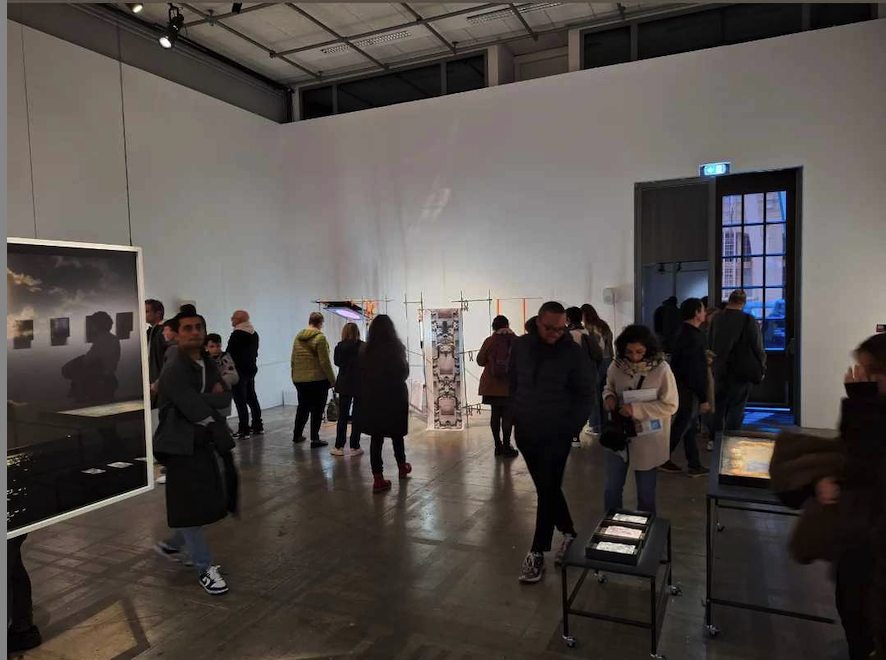
The Echoes of the Abyss: Toxic Legacies of Oceanic Ecologies, explores the environmental dangers caused
by abandoned, unexploded munitions (UXO) lying on the ocean floor. As these munitions break down,
they release toxic chemicals, polluting the water, threatening marine life, and disrupting delicate
ecosystems. The project focuses on how this chemical decay changes the composition of seawater, harms
biodiversity, and impacts the overall health of ocean environments.
The work also highlights how acts of war and human exploitation not only shape global realities but leave
lasting damage on marine ecosystems at both small and large scales. Based on research carried out in the
Baltic and North Seas, the project draws on findings from scientific expeditions aboard the research
vessel Tara and its network of collaborators. It delves into how decaying weapons release chemicals that
alter the water’s composition and impact marine life, particularly organisms exposed to these
contaminants. Acts of war and human greed are reshaping not only global realities but also Oceanic
environments at micro and macro levels.
Beyond its scientific focus, the project examines the (in)effectiveness of current laws in addressing these
environmental challenges. By connecting history, chemistry, biodiversity, and the perspectives of
more-than-human entities, it calls for greater accountability and a stronger commitment to living in
harmony with aquatic life.
The research underpinning The Echoes of the Abyss began in June 2023, during Robertina Šebjanič’s
residency aboard the Tara research vessel, spanning the journey from Aarhus to Riga in the Baltic Sea.
This unique artistic-scientific collaboration emphasizes the deep links between human actions and
marine environments, urging critical reflection on the toxic legacies we leave behind.
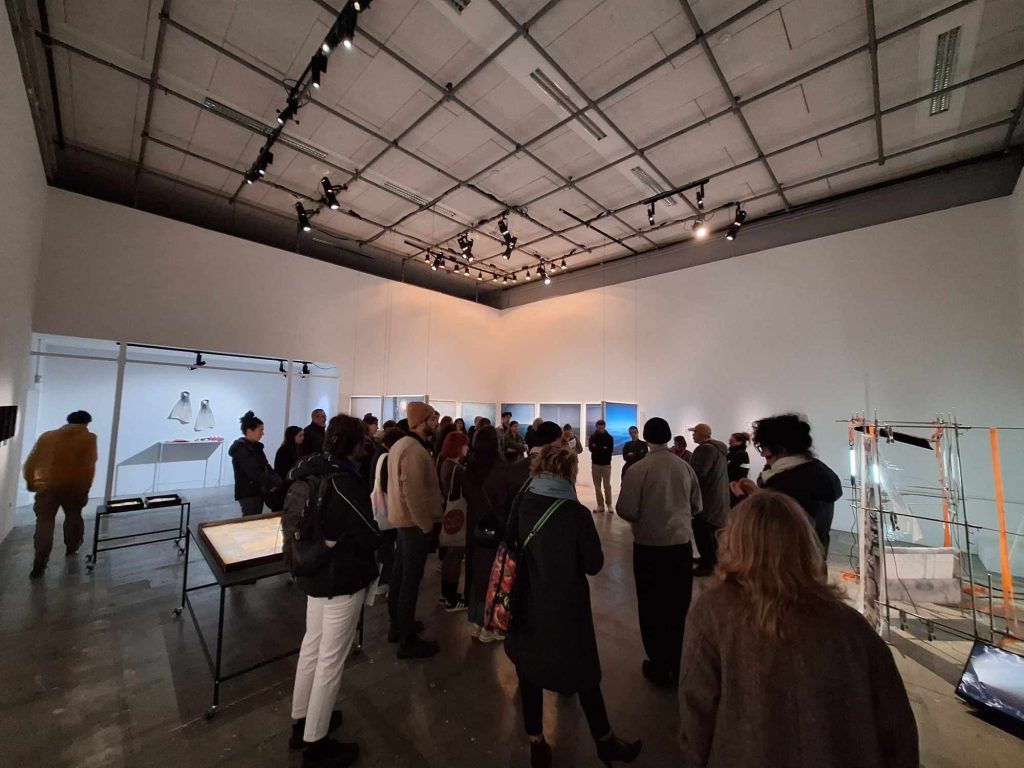

Robertina Šebjanič’s Logbook: Echo of the Abyss – https://fondationtaraocean.org/en/artistic-news/robertina-sebjanics-logbook-echo-of-the-abyss/

on board of TARA, Baltic Sea 2023
